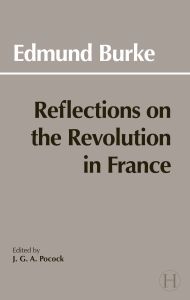A Vindication of the Rights of Woman
"A thoughtful and useful abridgement of an essential historical, political, and philosophical text. [Barnard and Shapiro] have managed to preserve the tone and arguments of the original while shedding much of the redundancy and lengthy quotations of external sources that can be off-putting and cumbersome for today's readers. The explanatory footnotes added to the text are helpful without being overbearing."
—Katrin Schultheiss, George Washington University
eBook available for $7.95. Click HERE for more information.
This edition features a shrewd, annotated abridgment of Mary Wollstonecraft's A Vindication of the Rights of Woman (1792) accompanied by an array of texts that help situate the Vindication in its political, historical, and intellectual contexts. Included are key selections from Wollstonecraft's other writings; from closely related works by Burke, Paine, Godwin, Rousseau, Macaulay, Talleyrand, and Brockden Brown; and from the 1789 Declaration of the Rights of Man and Citizen and de Gouges' Declaration of the Rights of Woman and Female Citizen (1791).
Reviews:
"A thoughtful and useful abridgement of an essential historical, political, and philosophical text. [Barnard and Shapiro] have managed to preserve the tone and arguments of the original while shedding much of the redundancy and lengthy quotations of external sources that can be off-putting and cumbersome for today's readers. The explanatory footnotes added to the text are helpful without being overbearing."
—Katrin Schultheiss, George Washington University
"A very judicious selection from the Vindication, and the related texts do a great job of setting Wollstonecraft's arguments within contemporary debates about women's education and, more broadly, eighteenth-century political philosophy. The editorial apparatus is also thorough and useful—especially the notes, which are outstanding.
"In short, the editors have created a fresh and stimulating new edition of Wollstonecraft's Vindication that will be infinitely useful in the classroom."
—Sarah Gwyneth Ross, Boston College
"Barnard and Shapiro are honest and sensible abridgers, often taking their cue from Wollstonecraft herself and cutting passages where she admits to 'wandering from her present subjec,' pursuing an 'apparent digression' or taking her argument 'further than it may be supposed I wish to go'. By leaving out Wollstonecraft’s own footnotes, Barnard and Shapiro have maximised the clarity and functionality of their own annotations, which are thoughtful and well placed, particularly when defining Wollstonecraft’s use of particular of terms (such as 'virtue,' 'sensibility' and 'middle class').
"The eleven 'Related Texts' offer supplementary contextual material . . . Divided into 'Revolution Debates' and 'Debates on Women's Education and Rights,' many of the selections from Burke, Macaulay, Paine, Godwin, Rousseau, Olympe de Gouges and Wollstonecraft's other writings will strike instructors as familiar choices, but there are some welcome surprises here too. Barnard and Shapiro provide their own translations of the French Declaration of the Rights of Man and Citizen (1789) and Report on Public Instruction (1791), which, along with their clear and concise headnotes, will help students to understand why Wollstonecraft opens her text with a letter to Talleyrand. Also included is an excerpt from Charles Brockden Brown's philosophical conversation novel Alcuin: A Dialogue (1798). Described by the editors as 'the first and most prolonged work of Wollstonecraft-inspired American feminism written by a man,' the extract should leave students with a firm impression of the transatlantic influence of Wollstonecraft's political thought.
"Barnard and Shapiro have produced a competitively priced and valuable teaching edition of A Vindication of the Rights of Woman, which is underpinned by a commitment to clear phrasing, explanation and contextualisation that undergraduate students will undoubtedly find helpful and illuminating."
—Journal for Eighteenth-Century Studies
Contents:
Introduction
A Note on the Text and Abridgment
A Vindication of the Rights of Woman, abridged
Related Texts
I. Revolution debates
1. Declaration of the Rights of Man and Citizen (1789)
2. Edmund Burke, Reflections on the Revolution in France (1790)
3. Mary Wollstonecraft, A Vindication of the Rights of Men (1790)
4. Thomas Paine, The Rights of Man (1791)
5. William Godwin, Enquiry Concerning Political Justice (1794)
6. Mary Wollstonecraft, An Historical and Moral View of the French Revolution (1794)
II. Debates on women’s education and rights
1. Jean-Jacques Rousseau, Emile, or Education (1762)
2. Catharine Macaulay, Letters on Education (1790)
3. Talleyrand, Report on Public Instruction (1791)
4. Olympe de Gouges, Declaration of the Rights of Woman and Female Citizen (1791)
5. Charles Brockden Brown, Alcuin; A Dialogue (1798)
Bibliography and Works Cited
About the Authors:
Philip Barnard is Professor of English, University of Kansas.
Stephen Shapiro is Professor of English and Comparative Literary Studies, University of Warwick.










